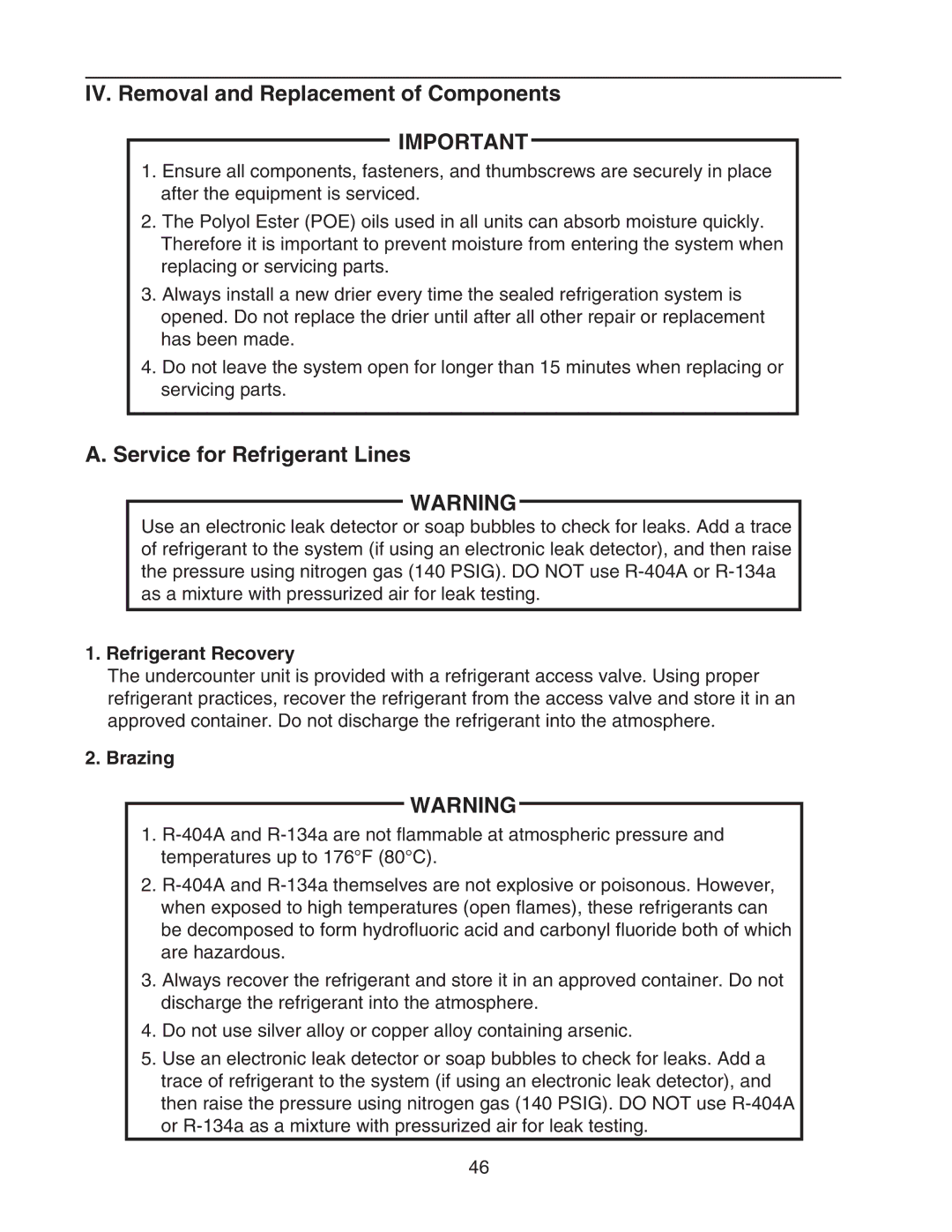
IV. Removal and Replacement of Components
IMPORTANT
1.Ensure all components, fasteners, and thumbscrews are securely in place after the equipment is serviced.
2.The Polyol Ester (POE) oils used in all units can absorb moisture quickly. Therefore it is important to prevent moisture from entering the system when replacing or servicing parts.
3.Always install a new drier every time the sealed refrigeration system is opened. Do not replace the drier until after all other repair or replacement has been made.
4.Do not leave the system open for longer than 15 minutes when replacing or servicing parts.
A.Service for Refrigerant Lines
WARNING
Use an electronic leak detector or soap bubbles to check for leaks. Add a trace of refrigerant to the system (if using an electronic leak detector), and then raise the pressure using nitrogen gas (140 PSIG). DO NOT use
1. Refrigerant Recovery
The undercounter unit is provided with a refrigerant access valve. Using proper refrigerant practices, recover the refrigerant from the access valve and store it in an approved container. Do not discharge the refrigerant into the atmosphere.
2. Brazing
WARNING
1.
2.
3.Always recover the refrigerant and store it in an approved container. Do not discharge the refrigerant into the atmosphere.
4.Do not use silver alloy or copper alloy containing arsenic.
5.Use an electronic leak detector or soap bubbles to check for leaks. Add a trace of refrigerant to the system (if using an electronic leak detector), and then raise the pressure using nitrogen gas (140 PSIG). DO NOT use
46
